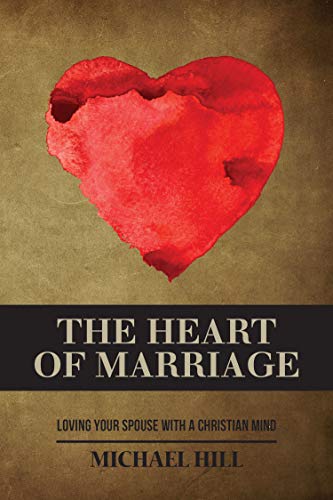
Supporting a friend in a difficult marriage
Wise and practical advice from Sarah and Keith Condie.
The first two articles in this series unpacked some of the features of healthy and well-functioning marriages. While no relationship is perfect, these marriages are marked by warmth, closeness and support. Both parties seek to love and care for the other, and each plays their part in helping the marriage to flourish.
Not all marriages are like that. Some relationships are far from healthy and need help. There are harsh words; criticism and blame are frequent. Or perhaps the couple have drifted apart and are disconnected. But whether the tone of the relationship is fiercely hot or icy cold, the warmth and closeness has gone.
Many factors can contribute to these difficulties. There may be external pressures, such as work, finances or caring for children or elderly parents. Perhaps the complexities of mental health challenges are taking a toll. Or there could be a power imbalance at play in the relationship.1
Sometimes those with particular expertise, such as relationship counsellors, are needed to assist a couple in moving forward. But whether that’s happening or not, I want to say upfront that we can all play a part in supporting the marriages of our friends—in our community, at our church or in the workplace. We may not be an expert, but we can be a friend who can walk alongside and provide support.
As we do so, it’s important to know that there is no ‘one perfect’ way to help. There’s no ideal question to ask, or flawless conversation you can have. There’s no magic number of times you talk to them that will turn things around.2
The truth is that loving others is messy. It’s not straightforward, and it rarely has clear-cut answers. But any effort to assist someone struggling with their marriage is better than nothing. And a little bit of common-sense care goes a long, long way.
Let me also suggest that it is hard to have honest conversations about marriage with children around. So if you are keen to walk alongside your friend, try to have these conversations when their kids are not around to hear (and potentially become confused or worried about) what’s being said. This may require some wisdom and thought.
Here are some suggestions for how to offer that care and support:
Check in and ask
We all need close friends who are also ‘friends of our marriage’. Ask a simple question, such as, ‘How are things going in your marriage?’ or ‘How can I pray for your marriage at the moment?’
Listen to their response
Focus your attention and tune in to what they say. Your friend will be more willing to open up if they sense you are genuinely interested and care. Don’t interrogate them but be gently curious. Don’t offer judgment. This is not the time to tell your friend that they should try harder; for all you know they may have been trying as hard as they can. Believe what they say. If they sense that you doubt their truthfulness, they will quickly stop sharing. Ask questions about how they are feeling. Their vulnerability may leave you feeling out of your depth but be willing to sit in the mess. They’ve opened a window into what their world looks like.
Be alert as to whether what’s going on is ‘difficult and dysfunctional’ or ‘abusive’
The precise nature of marriage difficulties rarely emerges from one conversation. The truth is that all marriages face challenging times, and we all fall into patterns of behaving that are less than helpful. Most of the time, we’re talking about ‘normal’ difficulties. In those cases, we walk alongside our friend and pray with them and for them and encourage them in godly responses and behaviour. In these circumstances, a marriage enrichment course, such as Building a Safe and Strong Marriage (more details below) can be of real benefit.
But if your friend says anything that suggests they are ‘walking on eggshells’, or that there are patterns of control or coercion, exercise that gentle curiosity. Ask questions such as:
- That sounds hard. What do you do when that happens?
- Has this happened at other times?
- Do you feel safe?
You may need to do a little ‘reading between the lines’, as your friend is unlikely to tell you how hard it really is or disclose the full extent of what’s going on. They will generally ‘understate’ rather than ‘overstate’. The important thing is to believe what they say and continue listening.
If you’ve noticed negative interactions between the couple in public, ask your friend, ‘I noticed ... How did that make you feel? What happened when you got home?’. Keep being curious.
If you believe that what they are describing might be abusive behaviour, recognise your limitations. Seek further advice from someone with more experience or expertise. But remember, safety is a priority. If you don’t think that your friend and their children are safe, encourage them to think about their options.3 Use your concern as an opportunity to be better informed yourself.4
Ask what help they need
Your friend may not know how to respond to this question, but it acknowledges that you are willing to do whatever you can to offer care and support. It gives them a sense of agency when they might feel that much of life seems out of their control.
Another empowering question to ask is ‘What has helped you in the past?’. Or ‘What keeps you going?’. Questions like these can remind your friend of the strengths they have previously drawn upon and help them to activate them once more.
Continue to be a support even if they are receiving professional assistance
Professional help for marriage difficulties can be a game changer. Your encouragement may help motivate your friend to get the help they need.
But they still need you. Offer to meet on a regular basis to pray for them. Regular touch points can provide a ‘safe’ space for them to be honest and share more about what’s going on. You could offer to mind their children while they go to see a professional.
If your friend’s marriage is abusive, it’s important to share the load. Encourage them to open up with a couple of others and together offer care and support. Don’t promise complete confidentiality. Their safety (and that of any children involved) is paramount.
If your friend’s spouse has significant mental health challenges, they face particular hardships. They may be juggling work, family responsibilities, caring for their partner, and being ever alert to whether their partner’s mental health is becoming less stable. They might need professional help and support, but they need a friend too. Sharing the burden with another might help them feel less alone.
Speak the truth about behaviour that is contrary to Scripture and the laws of our country
A person experiencing abuse can normalise this behaviour and understate the extent of the problem. They may become defensive when you raise concerns. You may need to alert your friend to the fact that the Bible does not condone abusive relationships and that there are laws in place to protect the abused. It may take numerous conversations before they recognise the dynamic in their marriage.
Remind yourself that you are not responsible to fix their marriage
We are called to ‘carry each other’s burdens’ (Galatians 6:2), but ultimately, ‘each one should carry their own load’ (Galatians 6:5). So, be that friend who walks alongside, provides a safe space, and offers support and prayer. But remember that in this fallen world, the good outcomes we long for don’t always eventuate. And when that happens, we are not to blame.
You may make mistakes along the way. None of us always gets it right, so sometimes your words and gestures of care will not be welcome. When this happens, offer an apology. Hopefully, your friend will forgive you. Part of being friends is the ability to reconcile with one another.
Be aware that supporting a friend in a difficult marriage can be time-consuming and exhausting
Offering this support can be hard. And it can be scary. This is particularly the case if abuse is taking place, and your friend feels powerless, invisible, and is made to feel that she is the one responsible for the difficulties in the relationship. You may feel like you have no idea what to do, or you fear doing the wrong thing. Don’t let this stop you from reaching out—you may well be the ‘catalyst’ for change.
This is especially important in our current climate where there is a real focus on things like being trained in domestic violence awareness. While these offerings are excellent and do help create awareness of symptoms of coercion and control and abuse, the idea that there are experts weighing in to say what’s right or wrong can sometimes have a paralysing effect, making the ordinary helper feel ill equipped to do anything, for fear of getting it ‘wrong’.5
It's important, however, to work out how you can care for yourself on a journey that may be tough and rocky. If you’ve had an intense conversation and heard hard things, give yourself space to recover. Take care of yourself, so that you can continue to care for your friend.
If you are walking alongside one friend, that is enough. You don’t have to carry the weight of all the marriages around you.
Final words
As a Christian brother or sister, let me encourage you with these words:
‘Religion that God our Father accepts as pure and faultless is this: to look after orphans and widows in their distress’. (James 1:27)
Your friend is in distress, and you play your small part in being God’s person in offering your love, care and support. You can’t do everything, but your something is better than doing nothing.
---
Building a Safe & Strong Marriage is a five-session Christian online course, drawing upon the wisdom of the Bible and some significant marriage research. You can work through the course at your own pace from the comfort of your home. No need to organise babysitters or go out! The video content is interspersed with couple exercises where you have the chance to talk together and apply what you’re learning to your own marriage.
---
Sarah and Keith are Co-directors of the Mental Health & Pastoral Care Institute. The Institute is a program of Anglican Deaconess Ministries (ADM), a ministry that inspires and empowers Christian women to bring the love of Jesus to a hurting world through education, compassionate ministries, community, and public gospel witness. Sarah and Keith have developed a Christian marriage enrichment course Building a Safe & Strong Marriage. This course has been run by many churches. Couples can work through the course independently from home online.
Footnotes
[1] Relationships Australia explored the common relationship problems in early 2023. Their findings were interesting and flag the impact that mental health challenges and patterns of coercive control have on marriages. https://www.relationships.org.au/document/what-is-the-most-common-relationship-problem/
[2] I want to thank Lauren Errington, Executive Director of the Family Systems Institute (https://www.thefsi.com.au), for the insights in this and the following paragraph. Lauren shared these ideas when speaking of how to support someone experiencing social anxiety (see https://mentalhealthinstitute.org.au/mental-health/social-anxiety-part-2). The same principles apply to supporting a friend in a difficult marriage.
[3] We all know physical safety is a priority, but so too is feeling emotionally safe.
[4] There are excellent resources to help you understand more about recognising patterns of domestic abuse. For example: Responding to Domestic Abuse Policy and Guidelines for the Anglican Diocese of Sydney https://safeministry.org.au/wp-content/uploads/Responding-to-Domestic-Abuse-Policy-Guidelines-and-Resources.pdf ; Renew: An Australian Guide for Christian Women Survivors of Domestic Abuse, edited by Esther Sweetman and Lynda Dunstan, Anglicare, 2022.
[5] Lauren said something similar when speaking of how to support someone experiencing social anxiety (see https://mentalhealthinstitute.org.au/mental-health/social-anxiety-part-2). The same principles apply to supporting a friend in an abusive marriage.

Heart of Marriage
Heart of Marriage integrates the biblical material on marriage with great insight and clarity. At the heart of marriage is godly other-person-centred love and service, good leadership, faithfulness and a one-flesh view of sex that God designed to be a taste of heaven to come.
For more articles from Growing Faith, subscribe to our monthly e-newsletter.
To hear about the latest books and resources from Youthworks Media, subscribe here.








